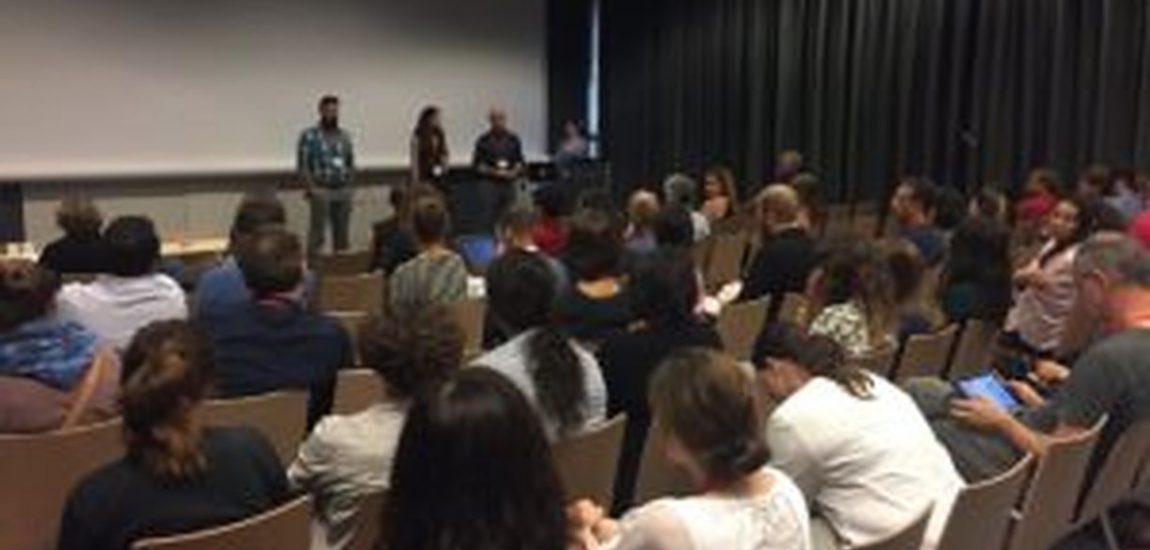
Goldschmidt Wild Orbit Cinema
Goldschmidt, like all conferences, is about communicating science among like-minded individuals, and connecting with people. The necessity to communicate this science more broadly – to members of the public, school children, or to people working in seemingly unrelated research fields – has also become widely acknowledged. Enter, Wild Orbit Films (@wildorbitfilms), a production company led by scientist and film-maker duo Adrienne Macartney (@Science_Hooker) and Bevis Evans-Teush. Throughout the week, Wild Orbit Films will be screening 15 short films showcasing the best of geochemistry research, taking place each lunchtime in Salle 243. These films were selected from an incredible 92 original submissions, all produced by members of the scientific (and wider) international community. “We wanted a range of films from one-minute ‘tweet your science’ features, to more serious films”, says Adrienne, who along with Bevis had the tricky task of selecting 15 films for screening this week. Bevis, who has been a filmmaker for 17 years, also raised a high bar: “I was looking out for something as good as my favourite science film – Powers of 10”.
The 15 showcased films vary in their length, style, artistry, and message. But all have the overarching objective to convey their science in a clear, creative, and engaging way. Monday’s selection covered dinosaurs, exoplanetary biosignatures, fieldwork in Costa Rica, and environmental resources and contamination. These, and the films being screened through the rest of this week, demonstrate the huge and exciting diversity of geochemistry research. On Thursday, screened films, which will be judged by eminent scientists and media professionals including Dr Zita Martins and Prof. Liane Benning. There is also a People’s Choice prize, so release your inner film critic and visit http://wildorbitfilms.com/finalists2017/finalists2017.html to vote. Prizes will be awarded to the best communicators in science, and the winning films will be screened on Friday 18th at 13.00.
So, what advice do Adrienne and Bevis have for any budding science filmmakers out there? “Science films should be 6 minutes max, or split into episodes. They also need to deliver on the title – stay on message or lose the audience”, is Bevis’ key advice. Research scientist and communicator Adrienne also explains: “if you make a high quality film your research will stand out, which is beneficial for funding and making new collaborations…there is also a growing disconnect between what scientists actually do and public perception, which well-made, engaging short films can help address”. Josh Wood from the Deep Carbon Observatory Engagement Team, also had a few final words of wisdom: “A story is important, regardless of whether it’s a science film or not…crucially, films have longevity”. Wild Orbit Films hopes to bridge the gap between scientists and film-makers, be it short pilot projects or embarking on a series of professional documentaries, so if you haven’t paid them a visit yet, make sure to catch them this week.
